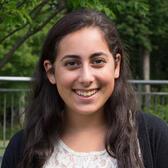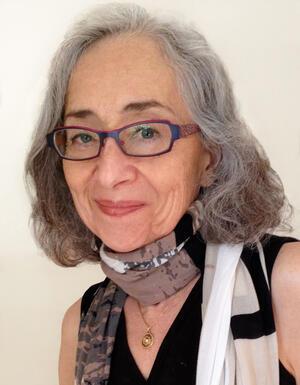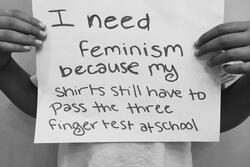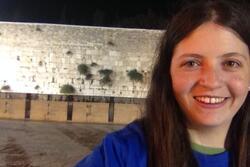May You Be Blessed In All That You Are
Each Shabbat my parents bless me with the words, “Be who you are and may you be blessed in all that you are.” These words have been embedded in my mind as my family’s traditional blessing, signifying the start of Shabbat. While other families bless their children saying, “May God make you like Sarah, Rebecca, Rachel, and Leah,” this alternative prayer has been our way of welcoming the Sabbath for as long as I can remember. Week after week, year after year, Marcia Falk’s inspiring words have been a symbol of the inherent holiness that is Shabbat, and they are the most meaningful words I can imagine…to be who you are, and to be blessed in all of it.
Marcia Falk, the renowned poet and Jewish scholar, has had a great impact on my life. We share a love for poetry and literature. Growing up with her words in my head, I have come to realize all that I can learn from Jewish female poets. Though 50 years my senior, Marcia’s powerful words have allowed me to explore my own personal Jewish feminist views. Through reading her work and reciting her alternative blessing each Friday night, I am constantly reminded of what an inspiration Marcia is, and about Jewish feminism’s mandate that empowers us to think deeply, to revalue and sometimes to even rewrite Judaism, and to discover how we can make it our own.
Marcia Falk grew up in the 1950’s, a time when prayer was traditional, formal and formulaic. She was revolutionary in breaking away from the traditional language of Jewish prayer, and in experimenting with something new, something entirely meaningful, and something that is still relevant today. Falk experiments with a range of meaningful images for God; indeed, she gives voice to God as a verb. No longer the old man or cloud, or a king with a beard, but rather the source of life: the well, the nurturer, the source of blessings. These new and experimental ways of creating liturgy feel essential to me. Marcia’s blessings allow me to make prayer more individual and to bring my Judaism to life. I can then take part in a Judaism that is relevant to me. I am blessed to have grown up with the legacy of Marcia’s gifts and contributions, and therefore blessed to have grown up with a Judaism that speaks to my life and to who I am. It’s hard for me to imagine a time when this wasn’t the norm, and I wonder what Judaism would have felt like to me if I had grown up 40 years ago, before Marcia Falk’s new formula for blessing.
Although Marcia and I both experienced growing up in New York, we did so during dramatically different times. Marcia grew up in a time when daring to rewrite traditional Shabbos prayers was considered heresy. For Marcia Falk and for the women of her time, this idea of challenging religious norms was revolutionary. Marcia represents the license and the power to transform Jewish prayer, something that, thanks to her work, is now acceptable and widely practiced.
Marcia and I differ in a number of critical ways. We grew up in very different environments. When I was a young girl I was under the impression that every family starts Shabbos the way my family does. However, Marcia herself didn’t have the privilege of growing up in a society that embraced young writers who questioned traditional Jewish liturgy. Due to this crucial difference, her experience of Conservative Judaism differed greatly from my own. Thanks to women like Marcia Falk, questioning the words in my siddur (prayer book) is a regular part of my Jewish experience. Asking questions and challenging the norm has become an essential factor of my Jewish life, as essential as studying Hebrew or wearing a tallis (a traditional Jewish prayer shawl). There were likely many other women growing up in 1950’s New York who shared Marcia’s views on Jewish prayer, but Marcia was the one who took it upon herself to directly address the restrictions imposed upon her and upon other women. However, it’s not only the mere fact that Marcia raised her voice to question traditional Judaism that makes her so very admirable, it’s the fact that she was a woman and did so. Growing up in the post-war 1950s probably wasn’t the most inviting environment for young feminists with aspirations of religious change.
For me, it’s only natural to blend the words of poetry, social justice and Jewish prayer—it’s how I have grown up. My Jewish experience is made possible by brave and inspiring women like Marcia Falk. While we were raised in very different times, and while Marcia’s Conservative Jewish practices differ from my own, she has provided me with a framework to help make Judaism my own. When I pray with words that are meaningful to me, Judaism becomes relevant to my life as a teenage girl in 2015. It is my responsibility as a Jewish feminist to learn from Marcia Falk, who brings 21st century sensibilities to prayer, and who reminds me that I am blessed in all that I am.
This piece was written as part of JWA’s Rising Voices Fellowship.







